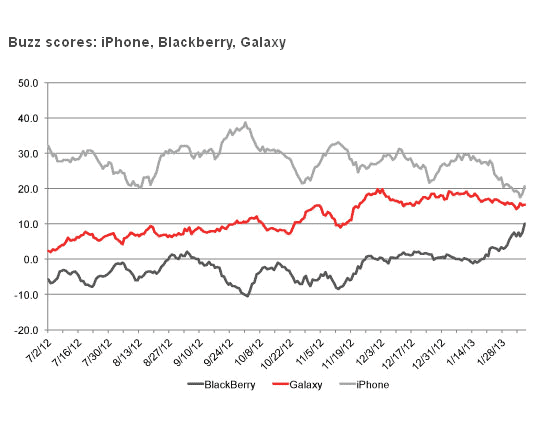
Early in August, after the police shooting of a 29 year old London man, Mark Duggan, sparked riots that lasted the better part of four days, an unexpected connection to Canadian technology was revealed.
The combination of social networks, wireless devices and the cameras they contain mean the gradual blurring of public and private life that has been occurring for the better part of a decade has nearly eroded. Scotland Yard was aware of this when they warned that anyone using Twitter to incite further riots would be punished. The London Police force admitted it had officers scanning the site. What Scotland Yard hadn’t counted on was a high-level encrypted social network that was in the hands of a great many of those involved in the riot; BlackBerry Messenger.
As the riots moved from a day long affair into flare ups that spread and lasted for days across various parts of England, policed noticed that many of the culprits were carrying BlackBerrys. Tottenham MP David Lammy contacted Research in Motion and asked the Waterloo company to shut down its BBM service in England. As the UK’s Guardian pointed out the “Data Protection Act allows companies to hand over an individual’s private information if it is in the interests of national security or if it allows for the detection and possible prevention of crime.” What this meant was that RIM could co-operate with Scotland Yard, and that’s what the company did.
_____________________________________________________________________________________________________________________
JUST OUT: Cantech Letter Sponsor Verisante (TSXV:VRS) has received Health Canada approval for Aura™, the company’s skin cancer detection device. CLICK HERE for the full story….
______________________________________________________________________________________________________________________
This, of course, was a no win situation for the beleaguered Canadian wireless device maker. RIM’s BlackBerry Blog was subsequently hacked by a group calling themselves TeaMp0isoN, who warned RIM, saying that “You Will _NOT_ assist the UK Police because if u do innocent members of the public who were at the wrong place at the wrong time and owned a blackberry will get charged for no reason at all.”
It’s now October and RIM’s secure network is back in the news in a big way. Early this week, some BlackBerry users in Europe began losing service, the outage eventually spread, over the course of three days to Asia, The UAE, Latin America, Canada and the US. The reaction from subscribers and media pundits was one of exasperation mixed with bouts of outrage. One of the most vocal critics was Alastair Campbell, the former Director of Communications for Tony Blair, who summed up the feelings of many when he tweeted:
On a serious note, can someone at @blackberryuk explain WTF is going on, and what you are doing to fix, explain and recompense?
The reaction from BlackBerry users worldwide has led some to ask if it is time for RIM should ditch its “secretive” network in favor of one that is more distributed and robust. A Reuters article in the form of a Q&A said it was time for the company to start looking at alternatives. “When RIM first launched the system in the 1990s, no competitors could often similar security features. ” said the unbylined article. “Many alternatives have since been launched for the iPhone, Android and other devices that do not require customers to use centralized data centers. Instead they can host the services at their own, internal data centers.”
And noted tech blogger Chris Umiastowski, in a note to subscribers, said he was “annoyed that RIM fails consistently to model best practices in the industry.” Adding that “belief is that RIM has a serious architectural problem within their network. At any other major company heads would roll from repeated “failed cutovers” of core switches. This ain’t the first time that NOC infrastructure failed to cutover to a backup. How often does Google.com go down?”
Occupying another part of the debate are those who believe that RIM must do whatever it takes to defend its enterprise market, and the outage itself is evidence that the devices and their current security specs are highly valued by that audience. ZDNet’s Larry Dignan summed this up plainly, saying: “RIM positioning is critical since the enterprise is the company’s core. If the enterprise goes, RIM is toast. It’s really that simple.”
Research in Motion, for all its troubles in the consumer market continues to the go-to choice in the world of government and business. It’s no accident that the loudest outcries during the outage were from Washington DC, where the outage was theatrically dubbed “Black-pocalypse.” by some on Capitol Hill, and in Ottawa, where Dean Del Mastro, the parliamentary secretary for Prime Minister Steven Harper said the city was taken “back to 1985” in Terms of connectivity.
RIM’s approach to security is fundamentally different than other device makers. The company uses complex codes to encrypt data as it travels between a BlackBerry server and the BlackBerry device. All BlackBerry traffic runs through the company’s own secure Network Operations Centers. Despite the fact that these centers are at the crux of the issue, some say manufacturers like
Apple are not immune to the step, they are simply forgoing it.
Carmi Levy of IT Business says “RIM’s best-of-breed mobile security model is so good that it gets singled out while other vendors – I’m looking at you, Apple – get a free ride (okay, who are we kidding? Traffic on iPhones and other smartphone platforms is so relatively easy to pick off that it’s safe to assume that governments are already monitoring them.)”
Recently, before British Parliament, the Government Communications Headquarters (GCHQ), a British intelligence agency responsible for providing signals intelligence and information assurance to the UK government and armed forces, warned of the security threats surrounding smartphones, concluding that “Only BlackBerry devices, made by the Canadian firm RIM, are approved for classified data and only at the least sensitive level. The firm has passed GCHQ tests of its security technology – including a strong encryption system – for weaknesses that could be exploited by foreign spies.”
_______________________________________________________________________________________________________________
Leave a Reply
You must be logged in to post a comment.






 Share
Share Tweet
Tweet Share
Share




Comment